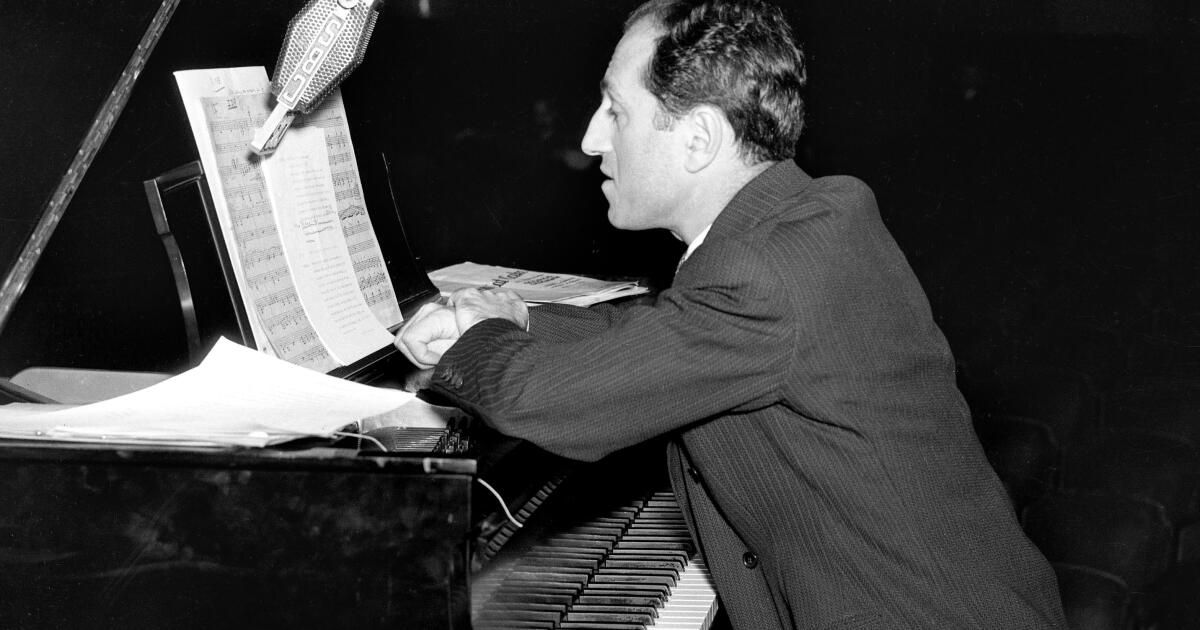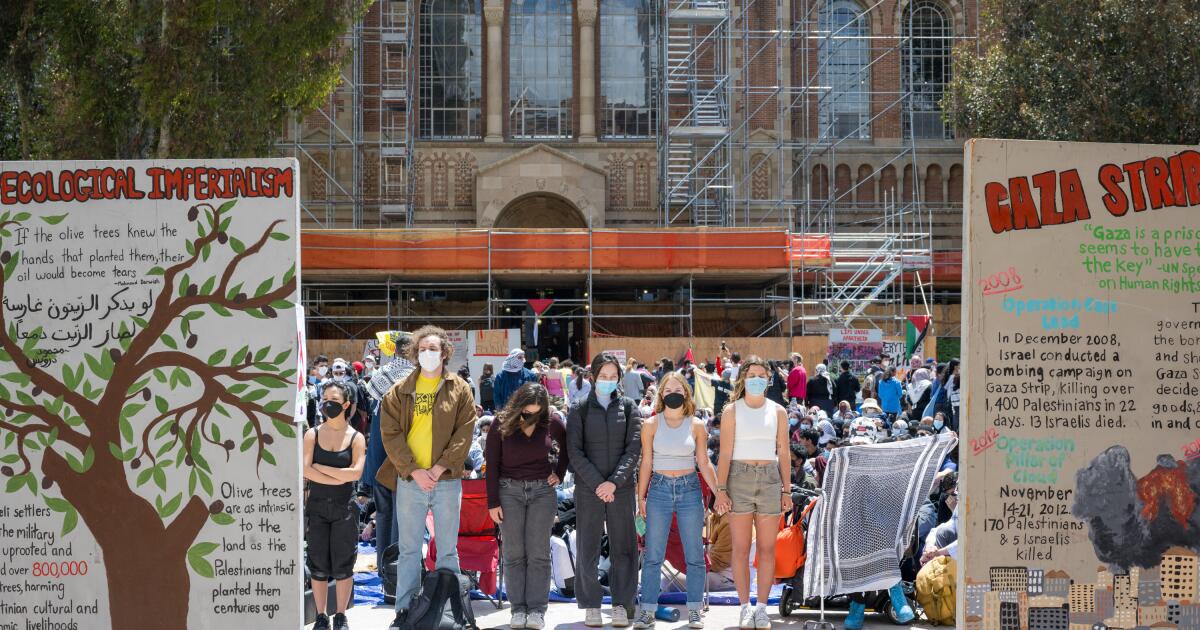To the editor: Thanks to Gustavo Arellano for the tribute to George Gershwin and his “messy” masterpiece, “Rhapsody in Blue”. Despite the criticism of this work, artists will play and audiences will applaud this fusion of jazz and classical romanticism 100 years from now.
To the snobs who say it's lazy, unstructured and messy, fans of Gershwin and his music say this: we don't care. “Rhapsody” moves us.
To cultural critics who claim that Gershwin “appropriated” black music, here's what black listeners and performers have been saying for years: What nonsense!
Gershwin always gave credit to his sources of inspiration. His songs, “Rhapsody,” and his grand opera, “Porgy and Bess,” are all tributes to music that comes from specific cultural roots, but are gifts to humanity that must be treasured and received as sources of inspiration. No group “owns” his artistic creations and has exclusive rights to understand or interpret them well.
Ella Fitzgerald, one of the great singers of the 20th century, recorded all of Gershwin's songs. She was black, and so was I, united in our love for a great composer who broke barriers and touched our hearts.
Sidney Morrison, Los Angeles
..
To the editor: Arellano is very right to draw attention to the very American “Rhapsody in Blue.” I was among the audience who found joy in the piece when Leonard Bernstein conducted it from the piano one beautiful summer night at New York's Lewisohn Stadium in the early 1960s.
Part classical and part jazz, it's an easy piece for everyone to enjoy, even humming or whistling.
One wonders, however, why it took Arellano so long to finish the entire piece. The recording with Bernstein conducting the Columbia Orchestra from the piano lasts just over 16 minutes.
And of course, in Bradley Cooper's brilliant film “Maestro,” Bernstein is much better represented by his own compositions, such as “Make Our Garden Grow” and the finale of “Resurrection Symphony” by his composer idol Gustav Mahler.
Madeline Porter, Costa Mesa











